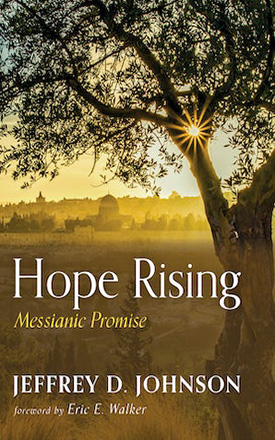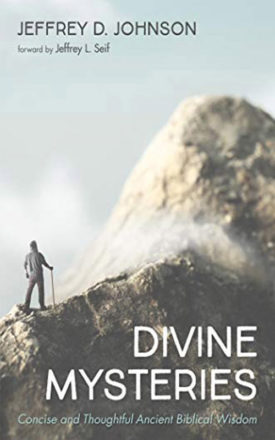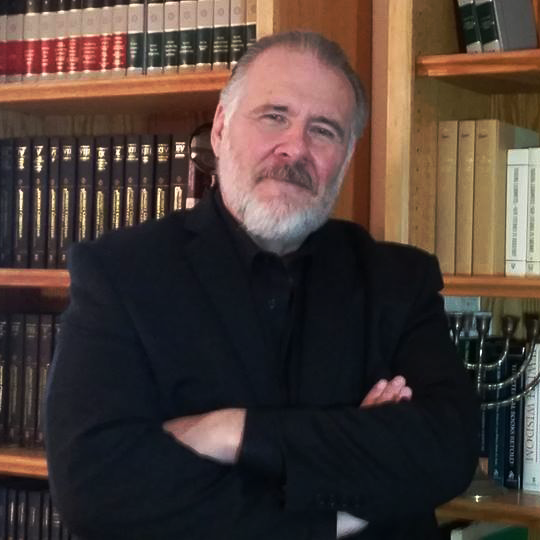Israel Today Resources:
-
 Hope Rising, Messianic Promise
Recommended donation: $20.00
Hope Rising, Messianic Promise
Recommended donation: $20.00
Add to cart
-
 Song of Song: The Greatest Lover
Recommended donation: $18.00
Song of Song: The Greatest Lover
Recommended donation: $18.00
Add to cart
-
 Divine Mysteries
Recommended donation: $15.00
Divine Mysteries
Recommended donation: $15.00
Add to cart
-

True or False
The Church is the “New Israel.”
The Abrahamic Covenant blessings are for the Church.
Supersessionism (super-session-ism)
“Supersessionism” is the belief that the New Testament covenant supersedes the Mosaic covenant of the Hebrew Bible, and that the Christian Church has displaced Israel as God’s chosen people,  en.oxforddictionaries.com. Radical forms of supersessionism are manifested in militant antisemitism, stating that God is done with the Jew, and Israel is irrelevant.
A “softer” expression of supersessionism is commonly called “replacement theology,” meaning, that Israel has been “replaced” by the church. Whereas, the church is now the recipient of all the promises, covenants, given to Abraham, Isaac, and Jacob, and all their descendants.
For the first-three centuries, the church acknowledged and embraced her Jewish birth, and had relatively normal camaraderie, and respect, between Jewish and non-Jewish believers, until, the Council of Nicaea (325 A.D.). During, the council, a magnificent church creed was established, the Nicene Creed. However, there were leaders at the council who were influenced by some of the earlier church writers, such as Ignatius of Antioch (50 – 117 A.D.), Justin Martyr (100 – 165 A.D.), and Marcion (see below). During the council, a decision was made and the “church” formally severed the celebration of the resurrection from the celebration of Passover.
Unfortunately, this began an avalanche of hatred, and adversarial attitude, toward the Jew, for 1,600 years, from Luther’s 65,000-word anti-Semitic treatise “On the Jews and Their Lies,” Â written in 1543, to Hitler’s Holocaust, in the 20th century, who was partially influenced by Luther’s writings.
Marcion: Archenemy of the “Jew God”
The strains of a deeper dynamic are at work, an historical cancer that may be traced to Marcion in the second century. Following the New Testament era, one of the first heresies that the church faced was propounded by Marcion, a wealthy ship owner in Turkey who came to Rome in AD 138. He began to argue that the Old Testament was inferior to the New and had no part of authoritative revelation. He fought to have it removed from the canon. To some degree, Marcion appears to have been influenced by the dualistic teachings of Gnosticism and Platonism. Marcion’s goal was to rid Christianity of every trace of Judaism. He became known as the archenemy of the “Jew God” and eventually was excommunicated.[i]
Unfortunately, Marcionss influence is still felt today almost 2,000 years later. In our concerted effort to be New Testament believers, we have too often unconsciously minimized the place and importance of the Old Testament and historic Hebrew roots.
Jewish Connection Severed
Today, “Neo-Marcionism” is a vanguard in promulgating the false teaching that Israel has been permanently cast aside and has no theological significance in today’s world. Unfortunately, there are popular movements within protestant denominations that embrace this point of view. The fruit of this teaching is found in the deprecation of the reading of the Old Testament among Christians and the emphasis of Hellenistic interpretation of the Scripture from the pulpit. Yes, Christianity was cradled in a Hellenistic culture; however, the religion from which it came was Hebraic. Therefore, looking to the Hebrew construct is where one begins to understand the Christian faith and the faith of Jesus, not the Hellenistic construct.
Wrath vs Love
People hear comparisons like: “The Book of Wrath vs the Book of Love; Law to Gospel; The New Testament has superseded the Old; the New Testament is better than the Old; The Old came before the Cross.”
The Church has been led to believe the Old Testament has no relevance today. And yet, when we read in the New Testament of the significance of the Word, the writers were referring to the Old Testament, since the New Testament was being written and would not be canonized or ratified until the third Council of Carthage (AD 397).
A Jewish Framework
You will not find within the Lord’s teaching a church that is severed from the seed of Abraham. He never envisioned a body of followers that deprecated the Jewish roots. Jesus and his first followers thought and spoke within a Jewish framework. The synoptic Gospels contain no evidence that Jesus visualized a Church which would grow separate from God’s chosen people of Israel.[ii]
It would be good for us to remember that it was through Abraham’s seed that the Messiah came. And that the world would not know about God and His Salvation through His Son, if it were not for the Jewish messengers who took the gospel to the nations. Jesus said it this way: “Salvation (Heb. Y’shua) is from the Jews” (John 4:22).
Christianity is Jewish
How can we change the unfortunate negative emphasis of “Marcionism” and “Supersessionism?” Simply, we need to remember, that not only is Jesus Jewish, but Christianity is Jewish.
Ron Moseley, in his book Yeshua, A Guide to the Real Jesus and the Original Church, stated: “Contrary to what some believe, the first fifteen bishops of the original Church at Jerusalem were Jewish.”[iii]
James, Jesus’s half-brother, was the first pastor at the Jerusalem church. Eusebius, the first church historian, records for us in his work, Ecclesiastical History, Book IV, chapter V, that the first 15 Bishops of the original church were Jewish.
And in fact, according to Mosely, evidence shows that all 15 were relatives of Jesus and chosen because of their godly credibility. He lists their names: (1) James; (2) Simeon (some believe was a cousin of the Lord); (3) Justus; (4) Zaccheus; (5) Tobias; (6) Benjamin; (7) John; (8) Matthew; (9) Philip; (10) Seneca; (11) Justus; (12) Levi; (13) Ephres; (14) Joseph; (15) Jude. This dates us to AD 132-135 around the time of the Bar Kochba Revolt.[iv]
The Abrahamic Covenant
The Abrahamic covenant states we will be blessed if we bless Israel. The Apostle Paul and Jesus himself explained to Gentiles (non-Jews) that they were to bless the Jewish people. (Romans 15:27; Matthew 25:40).
The Abrahamic covenant has never changed, but over the centuries, the Church suppressed the Jewish roots of the faith with what is called today replacement theology. Many are taught that the Church replaced Israel. Replacement Theology, taught by many “popular” bible teachers today, diminishes the prophetic biblical significance of the restoration of the State of Israel in 1948, after 2400 years of Jewish people being dispersed throughout the nations.
The church in the 21st century would do itself a disservice not to acknowledge its Jewish beginnings, or to ignore the Jewish Jesus and the cultural mores that shaped his teaching. The church must never forget the womb and cradle from which it came!
Shalom and Blessings,
Until He comes, we are
Together Under His Wings,
Dr. Jeff
The above article, was taken in part from Dr. Jeff’s booklet, “Jewish Roots: 101, An Introduction,” Wipf and Stock Publishers, 2017
[i]Wilson, Our Father Abraham, 108-109
[ii]G.A.F. Knight, A Biblical Approach to the Doctrine of the Trinity (Edinburgh: Oliver & Boyd, 1953), 2
[iii]Ron Moseley, Yeshua: A Guide to the Real Jesus and the Original Church (Hagerstown, MD: Ebed Publications, 1996), 1
[iv]Ibid.


